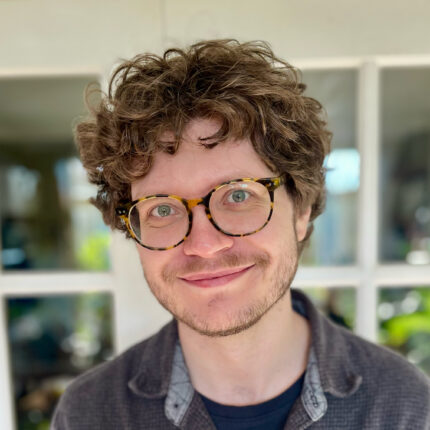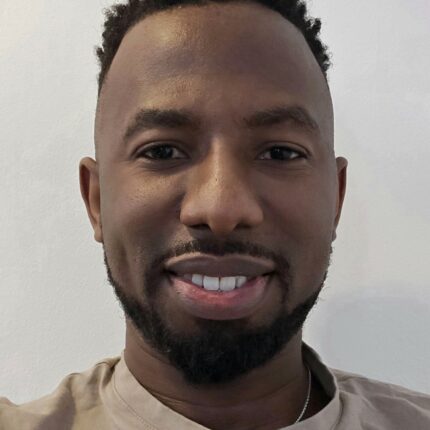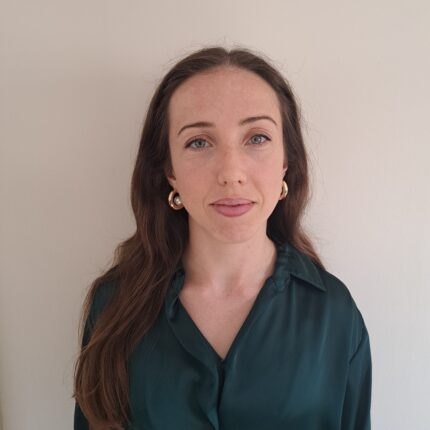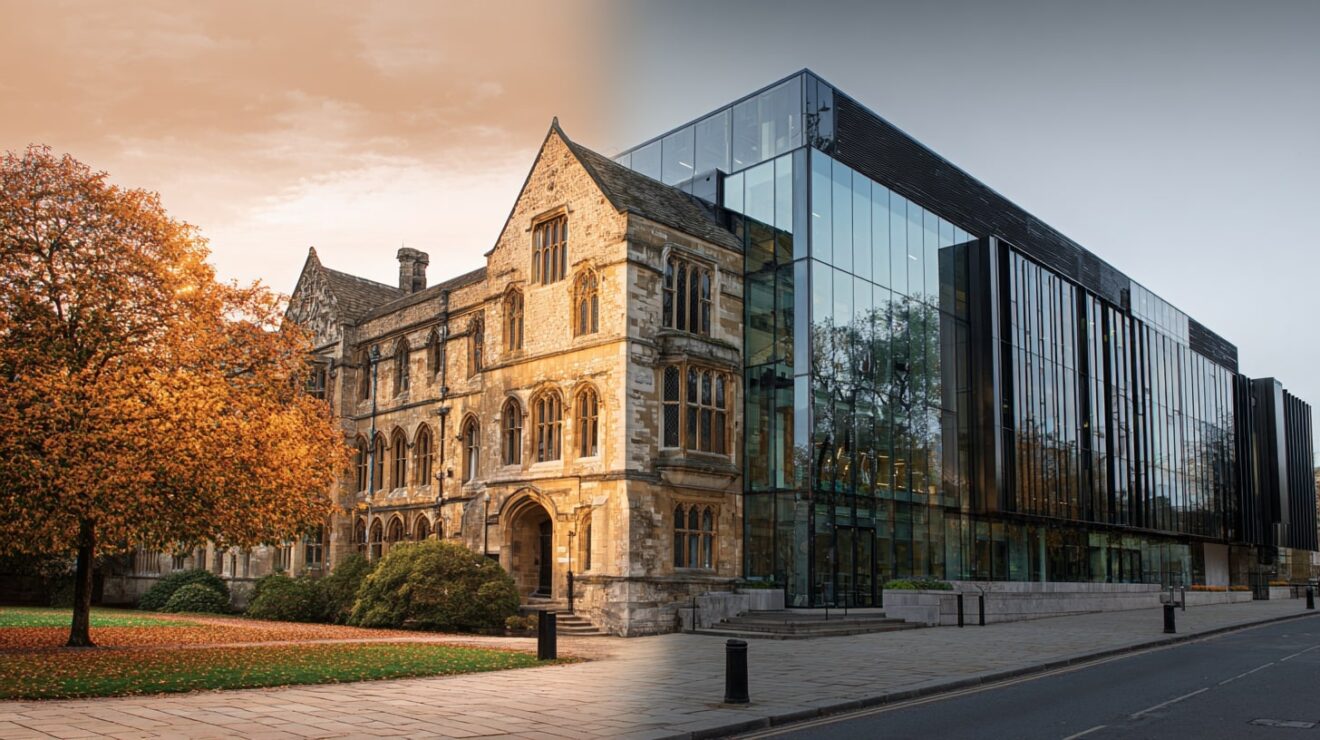Sixteen votes–that’s the amount by which I won election to the sabbatical officer role Vice President Liberation, International and Postgraduates (formerly Vice President Communities) in the Queen Mary Students’ Union (QMSU) elections in 2023.
I was one of six known PGR sabbs across the UK in the 2023/2024 academic year–and only the second PGR sabb at QMSU.
The first PGR in the role designated to support postgraduates, my electoral mandate set a strategic priority to continue building supportive infrastructure enhancing PGR experience.
The developments since have important lessons for SUs. The PVC for Research and associated committees is an important university senior manager that I suspect few SUs know.
PGRs are not “hard to reach”, but it’s a mistake to treat them like other students – and as many SUs are finding in their UG and PGT work, creating officer positions and structures “top down” doesn’t work unless it goes hand in hand with community building.
Here’s our story of how we did it.
The PGR student
Like many postgraduates, upon enrolment I had no idea how students’ unions related to my student experience. For me, QMSU was just that department that ran undergraduate student groups.
Or so I thought… until Covid-19.
Mid-2020, I became a member of the Queen Mary Pandemic PGRs, whose aims–e.g. better communication and support–were reflected in the sector-wide discussions around lack of consideration for us.
Pandemic PGRs was unaffiliated with QMSU–and only loosely affiliated with Queen Mary University and College Union.
Queen Mary’s Doctoral College pretty much required all members to organise through QMSU as the “official” voice of students at the university.
A democratic mandate would increase our standing within the university as elected representatives rather than members of a self-organised and “unofficial” student group.
So I successfully co-ran for election with another Pandemic PGRs member for the Postgraduate Research Representative (HSS) part-time officer (PTO) role during the 2020/2021 and 2021/2022 academic years.
Our joint student voice could no longer be outright dismissed–and I found my own student voice and a vested interest in helping others find theirs too.
The PGR PTO
In 2021, partly because my rolesharer and I were constantly breathing down their necks, the undergraduate sabbs then responsible for the Faculty of Humanities and Social Sciences (there’s a partial faculty sabb structure here) and student communities became inspired to better support postgraduates.
One result of our (arguably excessive) engagement was QMSU’s submission of a successful university business case that received block grant funding for a Postgraduate Insights and Engagement Assistant.
The PG(R) student staff role was to “understand how Queen Mary Students’ Union might better represent the interests of both Master’s and PhD students and improve their experience at QM in general”.
It was also to further support researching the union’s role in diversifying the postgraduate pipeline and widening PGR participation. First held by yet a third member of Pandemic PGRs, the final insights and engagement report provided initial data from which to create action plans, lobby the Research and Student Experience Directorates and organise events relevant to postgraduates.
I was re-elected solo for the 2022/2023 academic year and discussions began with my predecessor, fellow representatives on the Postgraduate Board Student Council subcommittee and the next engagement assistant around eliciting more robust qualitative postgraduate feedback.
We landed on a postgraduate consultative forum modelled after a pilot project at Oxford where postgraduates were paid to speak about thematic aspects related to their student experience.
QMSU’s senior management team decided that the project would be for PGRs only and a second business case would be submitted to create QMSU’s own pilot Postgraduate Consultation Group (PGCG) alongside a Postgraduate Research Representation Assistant (PGRRA) role.
The PGCG, chaired by the Vice President Liberation, International and Postgraduates and minuted by the PGRRA, would pay PGRs one-off payments of thirty-five pounds for ninety-minute thematic sessions organised as semi-structured group interviews.
The PGR sabb
By spring 2023, it was do or die–run for election and interrupt my research for the chance to lead the PGCG or trust the process without my direct involvement as a sabb. I chose the latter.
Interrupting a PhD for a year just before transferring to writing up may seem like a rash decision, but ultimately a sabbatical from my research was the right choice for my mental health–and the opportunity to realise the Postgraduate Consultation Group (PGCG) was too exciting to pass up.
I thought that it could become the culmination of my work over the preceding two and a half years.
I took up post in August, when the block grant funding was awarded to reprise the PGEA and create the PGRRA student staff roles and pilot the PGCG.
By late autumn we recruited two PGRs, Nick, a first year, and Lily, a fourth year in writing up. At that point we had some of the major components of a miniature PGR SU–strategic leadership, student voice and student engagement. How could we get the word out effectively about our various initiatives?
As a PTO I worked with the prior engagement assistants to build a QMSU Postgraduate Hub. One of my sabb manifesto pledges was to then continue increasing communication between the SU and postgraduates.
Early in my tenure I worked with our Communications and Marketing department to produce segmented communication and branding (e.g. email headers and print and social media templates). Yet capacity issues meant there weren’t sufficient resources to effectively use them.
In parallel, conversations were ongoing across the sector about REF 2028 (now 2029) and the importance of research culture. Queen Mary in turn decided to launch an Enhancing Research and Innovation Cultures Fund.
I asked QMSU’s Head of Communications and Marketing to co-apply for a PGR Communications Assistant to “make visible the community building, social support and networking initiatives” driven by the PGR representation and engagement assistants. We were successful.
Approaching critical mass
In early 2024 we recruited Lilyemma, a first year, and with her appointment, completed our mini-PGR SU. PGR student staff function differently to volunteer representatives or officers – and those differences matter.
As a PTO I contributed to a subject-based representation restructure. This meant a change from PGR Course Representatives to Subject Representatives–a subject-driven representative structure is more in line with Queen Mary’s doctoral course offering.
The PTO structure remained the same, with one volunteer officer leading the subject representatives for each of Queen Mary’s three faculties. When representatives are engaged, the structure functions to drive experience improvement–the Postgraduate Board subcommittee’s work is testament to this.
Yet if posts remain vacant or volunteer representatives and/or officers need to prioritise their research, gaps appear, and momentum is lost.
Employing PGRs as student staff allowed continual PGR student voice to become firmly embedded across QMSU’s teams. Arguments for more student staff have also been made as a solution to labour market shortages and SU budgets (among other factors) elsewhere at Wonkhe.
Hiring PGR students to develop and provide services for PGRs already brings a level of representation based on those students’ experiences. They’re also more likely to champion SUs to their peers and colleagues, having a sense of the union’s activities from the inside.
A recent report by University and College Union also exemplified the ways in which PGRs are affected by the ongoing cost-of-living crisis, with 80 percent of PGRs in part-time work outside of their research.
Why not offer PGRs the opportunity to work flexibly, close to their university, while contributing meaningful work and gaining experience in the charity sector?
Employing three PGR student staff at QMSU allowed the organisation to reach a critical mass of PGR service delivery. Here’s what they have to say about their experiences:
My PGR student voice costs me (and you)
Nick Anakwue, Postgraduate Research Representation Assistant
Deciding to join QMSU as a student staffer came with a mixture of emotions–I always wanted to contribute significantly to university life and activities while studying/researching. I was previously involved in various initiatives and programmes aimed at improving student experience across my alma maters in Nigeria.
I also knew that starting my PhD in the UK would bring difficulties with integration–especially as this was my first time out of the shores of Nigeria–and thought that working for QMSU could help cushion some of these challenges.
A direct translation of an Igbo (Southeastern Nigerian ethnic group) adage states:
“A newly arrived chicken stands on one leg in their new home.”
I intended that rather than hop around endlessly like this proverbial chicken, with a single overstrained leg, I could adapt and integrate better into UK postgraduate life.
Last, I was keen to effectively deepen my leadership and research skills within the role.
Time anxiety is a significant challenge for PGRs within the PhD completion timeline. Many PGRs also juggle a range of tasks and responsibilities (e.g. teaching, training, part-time work) that compete for this already limited time.
Nonetheless, PGR voice and engagement, especially in QMSU’s activities is critical to the goal of championing authentic student voice and representation across Queen Mary.
This is particularly salient given PGR voice is considerably lacking across student experience improvement deals, and while there are positive initiatives across the sector, an external agenda-setting body specifically for PGR voice does not exist.
As such, any strategy aimed at enhancing PGR engagement must consider creative ways of negotiating tangible value for their time and interest. These were crucial in developing and deploying the PGCG.
The PGCG sessions hosted about 10 participants per session, aimed at collating feedback on key areas of PGR life and experience at Queen Mary while offering compensation to incentivise their participation. The project offered participants a confidential and student-led (and student-only) space to give feedback about their time at Queen Mary as well as on future QMSU initiatives.
This strategy was successful. I registered over 74 PGRs on initial signups, which represented about 4.8 percent of the total PGR population at the time. However, the burden of sustaining this remarkable interest came with the responsibility to clearly communicate the value that their engagement returns to their student experience.
The sessions were structured into seven key thematic areas: building communities, PGRs and teaching, feedback/feedback channels/SU elections, PGR communal spaces, international PGR student experience, PGR careers and enterprises, and progression/research training/research resources/viva.
These themes were deliberately chosen to encourage reflection on the various important points of the PGR journey alongside some of the departments and spaces doctoral students are introduced to during their initial induction.
The PGCG offered unique insights into the PGR experience such as the need for greater awareness of PGR-specific study and leisure spaces available at Queen Mary, which Lilyemma is now addressing through awareness campaigns.
My experience working with the SU has deepened my skills in leadership, team collaboration and research. As a result of my work, I was also invited to share my insights on improving PGR student opportunity and engagement at the Westminster Higher Education Forum policy conference earlier this year.
Working with other PGRs within the SU is testament to the importance of community and collaboration to effectively deliver support not only built on authentic student voice but that also enables meaningful connections.
It takes a village: building a PGR community, one step at a time
Lily Freeman-Jones, Postgraduate Engagement Assistant (former)
Almost every postgraduate out there wants to feel part of a community while they invest in their degree–and yet within the UK, the post-Covid landscape has left many more than ever feeling isolated and alone, with disjointed provision of networking opportunities, professional development and social mixers across departments.
I started my part-time role with huge ambitions to develop the QMSU PGR experience, through a jam-packed events programme, surveys, restructurings, emphasis on improving physical spaces for PGRs on campus, and more.
However, as any new starter knows, beginning a new role comes with big dreams–and big reality checks! A highly limited budget meant I had to get creative about new ways to get PGRs (and PGTs) from across the university together in person.
Within my remit, I focussed on executing as many face-to-face events as possible, creating a sense of continuity through repeated favourites mixed with stand-alone events.
Balancing the different needs of postgraduates – from recreational activities to educational events, to information providing and finally to study and research support – was a key priority of mine and the others on the SU team. I designed a termcard that combined these needs in a regular rhythm aimed to give some structure and reliability to postgraduate calendars.
These events included: “Library Away Days”, where students worked alongside one another in structured co-working sessions at some of London’s most beautiful libraries such as Senate House; “Culture Trips”, where we spent an evening socialising before heading to a play at world-leading cultural centres such as the Globe Theatre; and “Research Showcases”, where students presented their own research in panels to develop their academic presentation skills and foster intellectual links across different disciplines and departments.
These were run in collaboration with QMSU’s long-standing and highly successful Liberation campaigns, which run themed events targeted at supporting and amplifying particular student communities.
This meant we could provide funding for panels on research in Jewish Heritage and History, and on LGBTQ+ History, which proved to be two of the most thought-provoking and moving events I’ve attended during my studies.
It was a privilege for me to meet students from all over the world–from Nigeria, China, Columbia, and Russia– who were studying topics ranging from how to better capture solar energy in impoverished communities, to those researching the history of Yiddish cinema or the intersection of the LGBTQ+ and Civil Rights movement in 1950s America; from the writings of lesbian activists in 1930s Catalonia; and those working with industry partners such as Boeing to improve aviation efficiency in engineering; and those studying areas of mathematical research such as combinatorics.
Introducing these students to each other and learning about their research was one of the most rewarding things I’ve ever done. It impressed upon me the incredible range of research and activities a single university supports, and the value of our postgraduate research communities–as well as how the international nature of these communities can foster greater cross-cultural understanding across global cultures and languages.
I concluded these activities with greater respect and appreciation for what a postgraduate degree is, as well as an expanded understanding of the challenges these students were facing.
Across all these events, the importance of face-to-face collaboration and community building was essential to their success–both for me designing them with colleagues from Barts and the London School of Medicine and Dentistry or with full-time staff at QMSU, and for the students, for whom these events offered a valuable opportunity to work (or socialise) together and meet their peers.
Ultimately, I couldn’t have done any of these things without support and community from my SU PGR team in Matthew, Nick, and Lilyemma, who provided constant encouragement, validation, and constructive support and feedback, and from the students themselves.
I left knowing that time spent building a community through face-to-face contact is one of the best investments any of us can make in our research, social, and professional lives–and that’s a lesson I think all postgraduates deserve to have the opportunity of learning.
Crafting PGR communication
Lilyemma Whalley, Postgraduate Research Communications Assistant
I had already been working at QMSU in its reception for over two years prior. When I saw the job listing for this position, I knew I had to get involved.
I was warmly welcomed into the PGR sabb and student staff team (initially through a shared Teams channel and subsequently through monthly planning meetings) and instantly felt at home in our own miniature students’ union.
My first project was commencing the second version of our Postgraduate Hub. This not only served as a great way for me to dive into the world of communications at QMSU but also immerse myself into the postgraduate community that the team had been working on beforehand.
The previous hub was difficult to find and somewhat limited. I wanted the new page to be functional, of course, but also a place that felt exciting. Particularly when research can often feel overwhelming and repetitive.
I streamlined all the pages to suit our postgraduate’s needs to ensure postgraduates across degree-levels feel valued within their students’ union. I really wanted to show that QMSU is for postgraduates. They’re not just an add-on to undergraduates.
The new and improved Postgraduate Hub is also a home for long-form articles, a space for further discussion and exploration of the Students’ Union and postgraduate life. Nick and I worked on a couple of articles based upon the PGCG’s findings, taking a research tone to engage PGRs–ultimately, PGRs are in their programmes because they are passionate about research, so this was an easy way to ensure they got involved with our content!
My second project was building upon a postgraduate version of QMSU’s weekly newsletter, which Lily started before I joined.
Segmented communications have been vital in spotlighting our PGRs at QMSU, highlighting upcoming events and opportunities while maintaining a positive relationship with them, who often can feel isolated and left out by an undergraduate-centred structure.
Involving your PGRs within their students’ union is so vital in creating a more vibrant academic community and research culture, while also supporting this key part of the student body.
The newsletter was not as frequent as the generalised version due to the hectic schedules and busy inboxes of PGRs. To combat a potential gap in advertising events, I also produced short-form correspondence on an ad-hoc basis.
I wrote individual reminder emails for key events, for example a PGR Palooza and PGR BBQ. These emails were kept short and snappy, meaning they would stand out easier and be better received.
My last and ongoing project involves raising awareness of PGR-exclusive spaces on Queen Mary’s campuses. This was partially inspired by the PGCG findings that PGRs struggle with community because of a lack of shared spaces in person.
I have been contacting individual departments to locate spaces available for their PGRs for inclusion on our Postgraduate Hub, as well as for our own checklists to use when circulating relevant print materials.
This will be vital in ongoing communication with PGRs to show how their students’ union goes to them, rather than expecting PGRs to come to us with their busy schedules – an argument that I hold closely with all my communications in this role.
Sustaining the pay-off and sector recommendations
We were able to achieve a host of holistic actions across student voice, engagement and communications. The PGCG provided a substantive collection of qualitative data to present to Queen Mary’s Doctoral College.
It was also paramount to developing a three-year PGR action plan alongside our Head of Student Voice and Insights, which corresponded with QMSU’s new strategy.
We also increased targeted PGR communication and improved email open rates. In turn, PGR event engagement increased dramatically across the academic year between initial international student mixers, research showcases and culture trips, the PGCG findings launch event (PGR Palooza), culminating with an end-of-year BBQ featuring QMSU’s only student group made up largely of PGRs, the Mexican Society.
As the new academic year commences, a new block grant bid was successful, extending all PGR-related projects. The PGCG was reprised for its second iteration and a term card is being drafted by the new engagement assistant. Now in its fourth year running, the role is currently held by a previous undergraduate QMSU sabb returning to undertake a PhD.
Hiring a suite of PGR assistants has proven more effective to improve PGR experience than full-time staff, PTOs and sabbs alone working on Student Council policies and projects.
We recommend that SUs across the sector consider adopting a similar approach. Doing so also makes the case for SUs as places where research culture happens in which student voice helps ”create inclusive environments where everyone can flourish and innovate”.





















